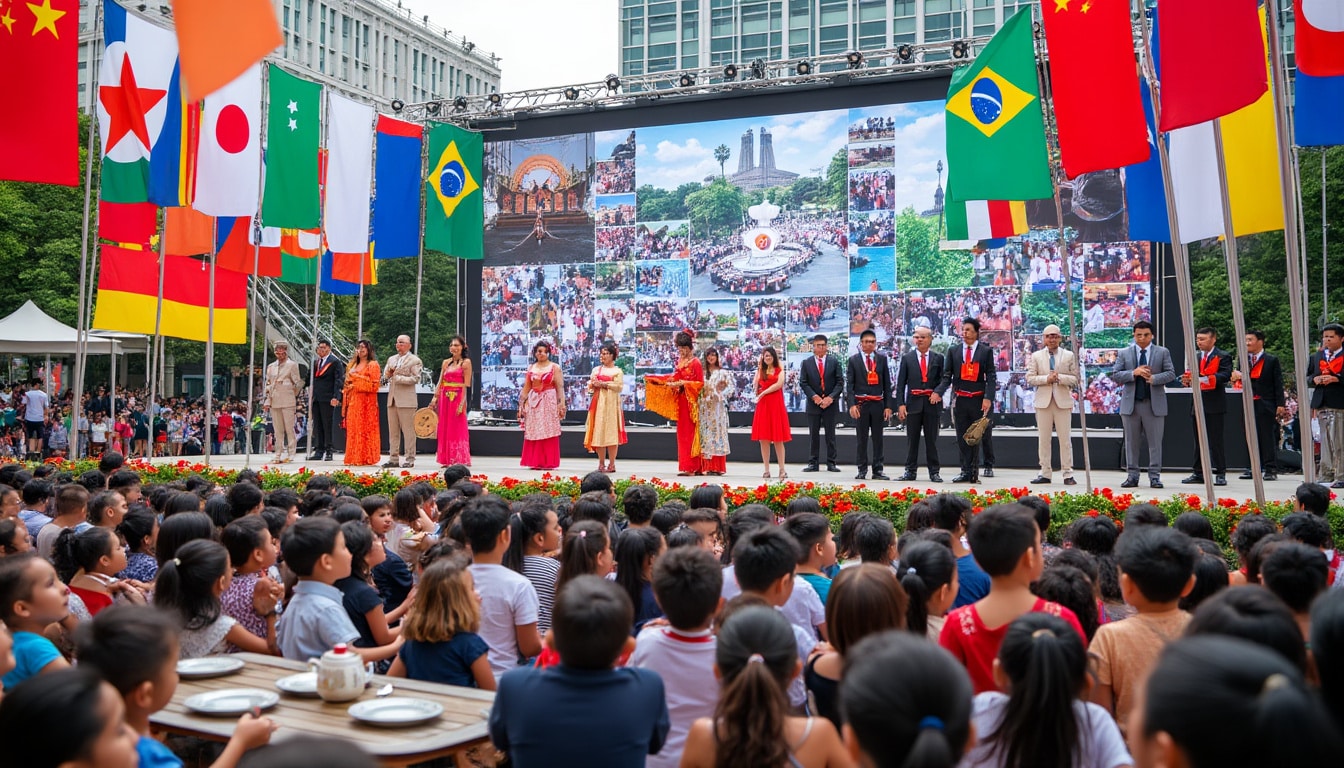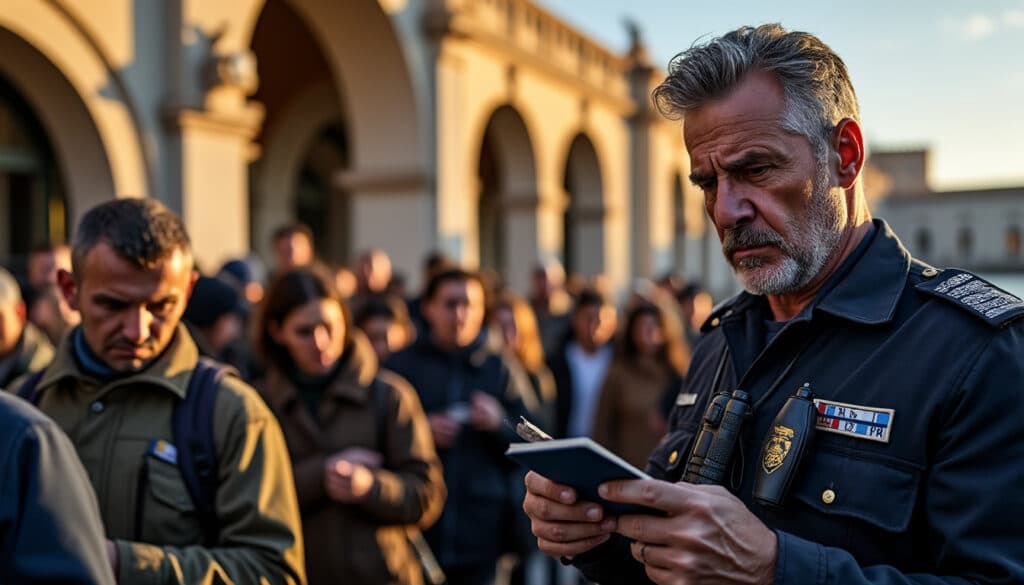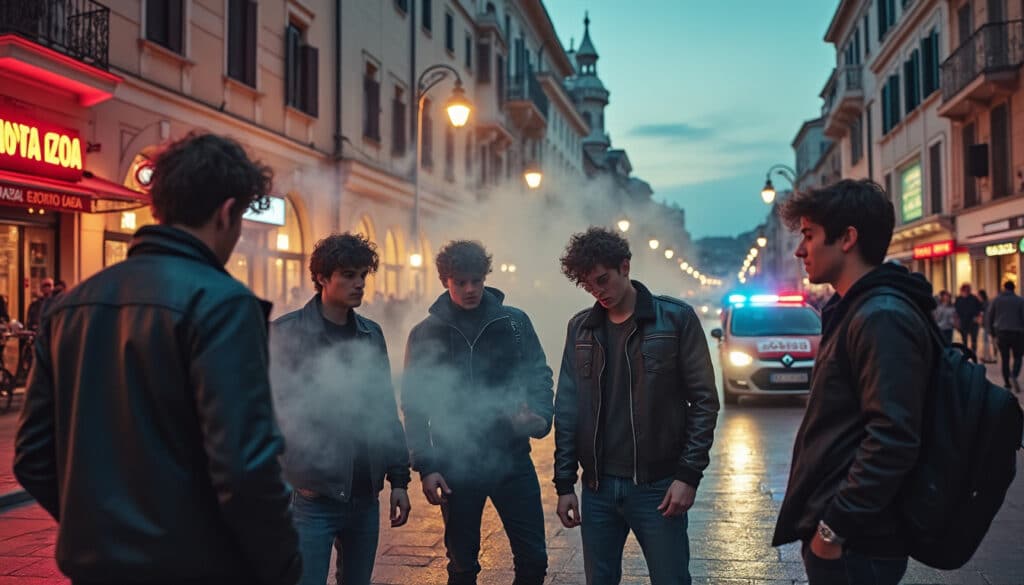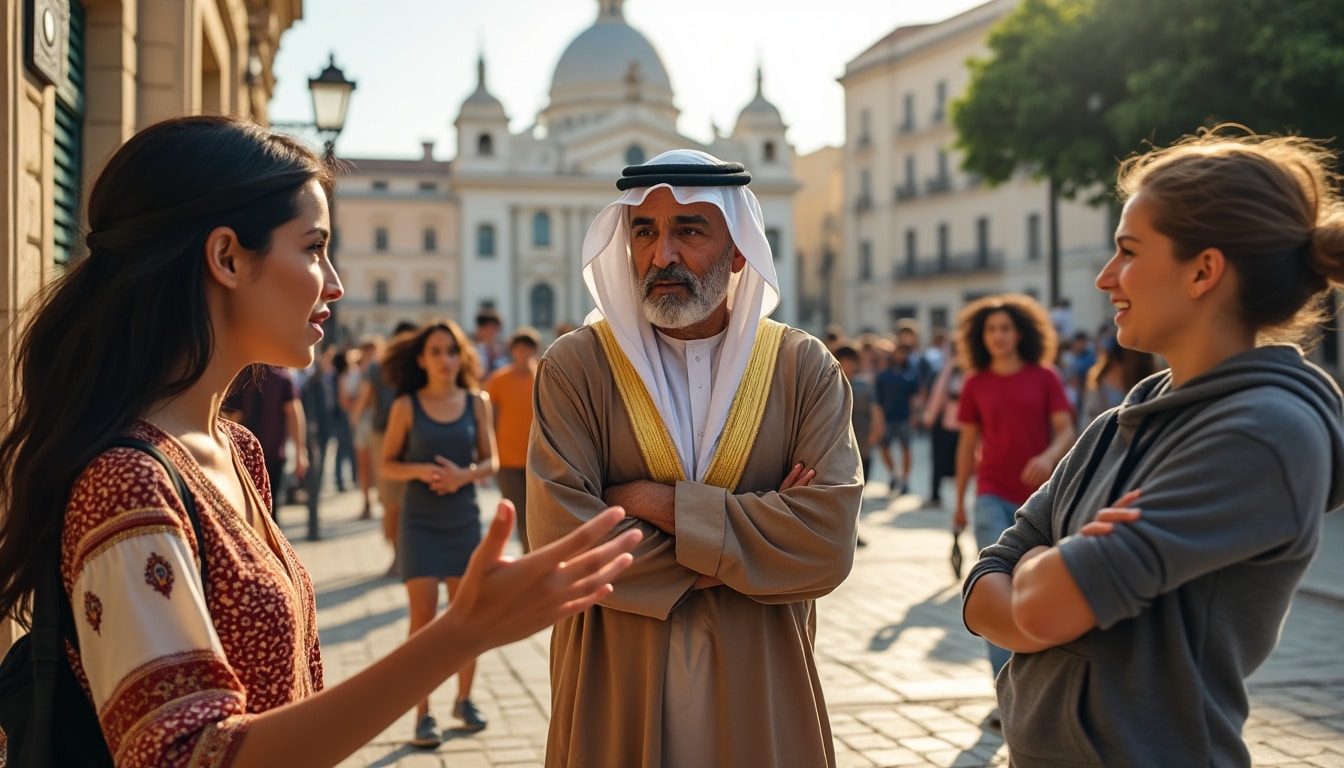The city of Split, with its rich history and vibrant culture, embodies the charm of the Dalmatian coast. Yet, beneath its picturesque façade, it grapples with contemporary social and discrimination issues. As Croatia continues to align with broader European Union standards, certain social challenges remain stark. From economic disparity, cultural divisions to racial discrimination, understanding these issues is pivotal for visitors and residents. Moreover, the roles of both historical context and modern-day policies in shaping these concerns are crucial to comprehend. The following exploration offers a lens into the complexities of social dynamics in Split, providing insights not only for empathetic travelers but also for informed global citizens.
Understanding Racial and Ethnic Discrimination in Split
Split, much like many cities with a rich tapestry of history, faces challenges regarding racial and ethnic discrimination. Though Croatia maintains a reputation for welcoming tourists, the societal fabric of Split reveals layers that merit attention. Known for its stunning coastline and ancient architecture, Split also carries the legacy of ethnic tensions, mainly stemming from historical conflicts and a transitioning economy.
Despite these challenges, organizations like Amnesty International and local advocacy groups are making strides in addressing issues of ethnic discrimination. These efforts are critical as the city sees an increasing number of migrants and tourists each year. For example, individuals from Romani backgrounds often face negativity, impacting their opportunities in employment and education. Studies by bodies like the Southern Poverty Law Center highlight similar racial disparities and advocate for structured solutions globally, lessons which are as relevant to Split as other parts of the world.
In reconstructing Croatia’s history, the city grapples with the remnants of past conflicts, which can sometimes spill over into the present. Ethnic tensions are a reality that the local government and civil society are striving to address. From the aftermath of the Yugoslav Wars to the current challenges of hosting refugees from Middle-Eastern nations, Split stands at a crossroads of harnessing its rich cultural heritage while fostering an inclusive society.
The Role of Cultural Integration
Integration remains a significant focus in countering discrimination. Cultural festivals and educational programs aim to bridge gaps, promoting understanding among diverse communities. By focusing on commonalities rather than differences, various initiatives seek to foster a more cohesive Split. The Human Rights Watch, among others, endorses such integrative efforts, emphasizing the importance of cultural exchange and understanding.
Moreover, the local economy’s reliance on tourism can sometimes obscure deeper social issues—tourists often only see the surface-level beauty, while underlying societal challenges go unnoticed. Thus, collaborations with international rights organizations are vital in promoting equality and safeguarding the rights of all ethnic groups within the city.
In essence, addressing discrimination in Split necessitates an ongoing dialogue between communities, backed by active governmental support and enriched by global human rights principles. By embracing diversity as a strength, Split can continue to grow as a progressive and inclusive city.

Economic Disparities and Accessibility Challenges
The tourism industry in Split brings a dual-edged sword, flourishing the economy while exasperating economic disparities. The picturesque environment attracts millions, yet it inadvertently raises local living costs, intensifying socio-economic divides. Local residents often face challenges in housing affordability—a critical issue similar to the global housing crisis identified by the International Rescue Committee. With real estate prices surging, many locals find it increasingly challenging to secure affordable housing amidst a market skewed towards short-term tourist rentals.
These economic disparities are not just housing-related. Employment opportunities in higher-paying sectors often remain elusive for marginalized groups, particularly those from minority ethnic backgrounds. The economic precarity they face is exacerbated by systemic barriers, making it difficult for them to access education and job opportunities that match their potential.
Addressing Unemployment and Underemployment
One of the significant social issues in Split is the challenge of unemployment and underemployment, particularly among the youth and minority communities. The local government’s initiatives for vocational training and education do offer some respite, but more targeted efforts are necessary. Training programs tailored towards in-demand sectors such as technology and renewable energy could provide viable pathways for sustainable employment.
Furthermore, organizations like the Global Fund for Women advocate for improving women’s economic independence, recognizing gender disparity as another crucial facet of economic inequality. By boosting support for female entrepreneurs and women in business, the economic fabric of Split can become more inclusive and robust.
- 🌟 Promote targeted vocational training programs.
- 🌟 Encourage support for women entrepreneurs.
- 🌟 Develop initiatives for affordable housing.
The need for comprehensive economic strategies to reduce disparities is a global concern, as underscored by the reports of Equality Now. Here in Split, such progressive measures can serve as a model for integrating economic policies with social justice frameworks.
The Impact of Gender Inequality in Split
Gender inequality in Split, like in many parts of the world, permeates various societal levels—from domestic norms to professional settings. Despite progress, significant gaps remain, particularly in economic participation and leadership roles for women. On a positive note, active advocacy from organizations such as UN Women and local grassroots movements are striving to close these gaps through policy changes and social campaigns.
Traditionally, gender roles in Split have been influenced by cultural and historical contexts. However, contemporary shifts are gradually changing these perspectives. Young women are stepping into leadership roles and challenging the status quo in both public and private sectors.
Boosting Gender Equality in Professional Environments
Enhancing gender equality requires concerted efforts to ensure women are equally represented and paid in the workforce. Data indicates that sectors like tourism and hospitality, dominant in Split’s economy, are yet to offer gender-parity in leadership roles. The advocacy for transparent hiring practices and equal pay is crucial.
Moreover, providing mentorship and sponsorship programs can propel women’s participation in economically influential roles. Insights from advocates like the Human Rights Campaign emphasize that visibility and representation can alter societal perceptions, creating an all-inclusive work environment.
| Indicators | Current Status | Goals by 2030 |
|---|---|---|
| Workforce Participation of Women | 65% | 80% |
| Leadership Roles for Women | 25% | 50% |
| Gender Pay Gap | 13% | 5% |
Recognizing gender inequality as both a social and economic loss, transformative approaches, backed by Race Forward and other global organizations, aim to align culture with equality sustainably.
LGBTQ+ Rights and Acceptance
In recent years, the visibility and acceptance of LGBTQ+ communities in Split have improved markedly, though challenges persist. Legal strides, such as the recognition of same-sex partnerships, have paved the way for increasing acceptance. However, societal attitudes take longer to evolve. Discrimination against the LGBTQ+ community remains, often rooted in cultural conservatisms and historical misconceptions.
Initiatives led by groups like the ACLU and local LGBTQ+ rights organizations have been pivotal in fostering dialogue and acceptance. Public events, pride festivals, and awareness campaigns bolster inclusivity and create safer spaces for self-expression. The emphasis on educational outreach helps disband myths and misunderstandings that fuel prejudice.
Promoting Inclusivity Through Education
Educational programs focusing on diversity and inclusivity hold significant potential in changing societal norms. By integrating LGBTQ+ history and issues into curriculums, schools can cultivate a more understanding and acceptance-driven future generation.
Additionally, community centers offering open dialogues and support groups for LGBTQ+ youth and allies facilitate personal growth and community solidarity. The role of art and media in shaping perceptions cannot be understated, as they provide platforms for storytelling and sharing authentic LGBTQ+ experiences.
- 🏳️🌈 Establish LGBTQ+ support groups and safe spaces.
- 🏳️🌈 Integrate inclusivity programs in education.
- 🏳️🌈 Host public forums and pride events.
Such measures, underlined by global entities like Amnesty International, reaffirm the city’s commitment to equality and anti-discrimination. Split’s journey towards inclusivity serves as a microcosm of broader societal shifts seeking to uphold human rights for all individuals, irrespective of their sexual orientation or gender identity.
Challenges and Progress in Social Justice
Social justice in Split is a multifaceted issue, entwined with economic, cultural, and legal dynamics. While progress is evident, particularly with increased advocacy and policy reform, significant challenges remain in achieving true equity for all. Efforts to dismantle systemic barriers require the collaboration of government bodies, non-profits, and the broader community.
Organizations such as Human Rights Watch continue to highlight areas needing attention and reform. Whether it’s tackling racial discrimination, gender inequality, or LGBTQ+ rights, the journey towards social justice in Split is fueled by a collective commitment to fostering an equitable society.
Community engagement and public advocacy remain driving forces for change. By encouraging civic participation and holding institutions accountable, Split is gradually transforming from a city marked by historical divisions to a city embracing diversity and equality.
Empowering Community Voices
Empowerment plays a central role in achieving sustainable social justice. Innovators, activists, and everyday citizens are key players in shaping policies and driving meaningful actions. Encouraging dialogue, whether through town hall meetings or digital platforms, empowers individuals to voice concerns and propose solutions.
Equally important is the role of international collaboration. Split’s progress is part of a larger tapestry of global movements championed by the likes of the International Rescue Committee and the Human Rights Campaign, which offer frameworks and support central to realizing comprehensive social justice.
- ⚖️ Foster community dialogue and engagement.
- ⚖️ Enhance partnerships with international human rights bodies.
- ⚖️ Support policy reforms with transparency and accountability.
In conclusion, as Split continues to evolve, its endeavor towards social justice will hinge on embracing collaboration, prioritizing education, and steadfastly advocating for equal rights for all citizens.
FAQ
What are some of the primary social issues in Split?
Split faces several social issues including economic disparities, gender inequality, and challenges in LGBTQ+ rights and ethnic discrimination.
How can tourists help address these issues?
Tourists can support local initiatives by participating in cultural exchanges, being informed about social issues, and championing local businesses that promote equality.
What efforts are in place to combat discrimination?
Local and international organizations are working tirelessly to combat discrimination in Split through educational programs, advocacy, and policy reform initiatives.
Are there initiatives to support gender equality in Split?
Yes, multiple initiatives focus on supporting women in leadership roles, closing the gender pay gap, and ensuring equal representation in various sectors.
Is it safe for LGBTQ+ individuals to travel to Split?
While Split is generally welcoming, remaining aware of the local cultural context and engaging with LGBTQ+ friendly establishments can enhance safety and acceptance experiences.

Legal Information and Rules in Split
The city of Split, a vibrant urban landscape known for its historical architecture and stunning Adriatic views, not only attracts tourists but also presents a unique framework of legalities and regulations that govern both visitors and residents. Navigating the legal…

Calling and communication rules in Split
Navigating the realm of communication, especially in a culturally rich and historical city like Split, requires more than just understanding the local time zone or dialing patterns. With its unique blend of ancient heritage and modernity, the city of Split…

Criminal status and entry to Split
The picturesque city of Split, Croatia, is a jewel of the Adriatic coast, offering rich historical architecture, scenic landscapes, and a vibrant cultural scene. However, for those with a criminal status, particularly under the strict scrutiny of immigration law and…

Drinking and age restrictions in Split
Planning a visit to the stunning coastal city of Split, Croatia? 🏖️ As you prepare for your trip, it’s important to grasp the nuances of local drinking laws and age restrictions. Split’s vibrant culture is replete with opportunities to indulge…

Moving to a new city can sound like an adventurous and exciting endeavor, and when that city is Split, Croatia, the prospect becomes even more appealing. Known for its breathtaking coastal views, vibrant culture, and historical significance, Split is an…

Smoking, drugs, and red light laws in Split
Split, a charming city on Croatia’s Dalmatian coast, offers historical allure and modern attractions. Yet, knowing the city’s laws on smoking, drugs, and its nightlife is vital for a delightful experience. This guide clarifies the legal scene in Split to…
Imagine a place where the turquoise waters of the Adriatic Sea kiss the sandy shores, where ancient history meets vibrant modernity, and where every street corner tells a story. Welcome to Split, Croatia—a city that holds the key to a…

